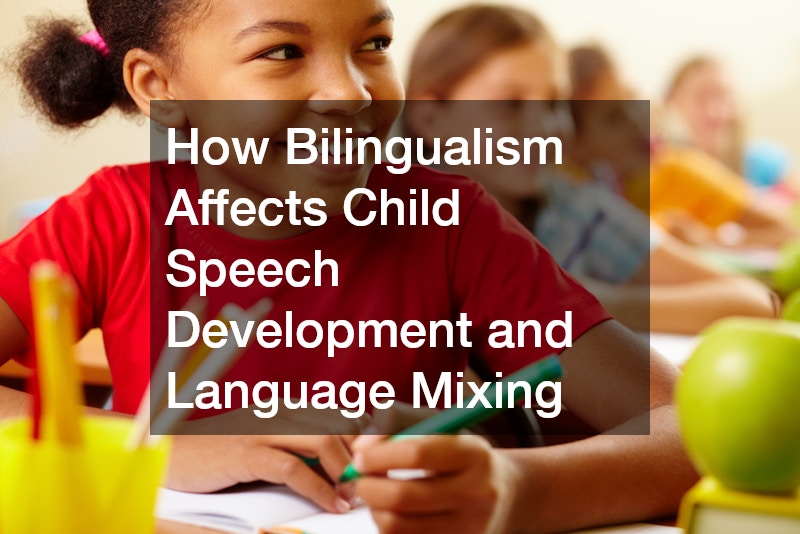Bilingualism is often surrounded by myths, especially when it comes to child speech development. One common concern is whether learning multiple languages can delay a child’s speech. Contrary to this belief, bilingualism does not cause speech delays. Children who grow up learning more than one language may mix words or grammar rules from different languages, but this is a normal part of bilingual development and not a sign of delayed or atypical growth.
When children learn multiple languages, such as taking French classes while speaking another language at home, they might combine elements of both languages in their speech. For example, a child might say “I want more lait” (mixing English and French), which is a natural occurrence in bilingual children.
This process, known as code-switching, is a normal and effective way for bilingual individuals to communicate. It does not indicate confusion or overwhelm. Instead, it reflects the brain’s ability to manage and differentiate between multiple languages.
As children grow, especially by the age of four or five, they typically become more adept at distinguishing between the languages they are learning. However, code-switching might still occur, particularly in informal settings or when a particular word feels more natural in one language over another. This blending of languages is not something to worry about; rather, it is a sign of the child’s linguistic flexibility and adaptability.
Moreover, exposing a child to multiple languages, such as enrolling them in French classes in addition to speaking another language at home, has cognitive benefits. Bilingualism is linked to enhanced brain development and improved cognitive functions, contributing positively to a child’s overall growth. The ability to switch between languages and adapt linguistic rules from different languages enriches the child’s communication skills and fosters a deeper understanding of both languages.
In conclusion, bilingualism, including participation in French classes, supports rather than hinders child speech development. The natural language mixing observed in bilingual children is a healthy part of their linguistic journey.
.


